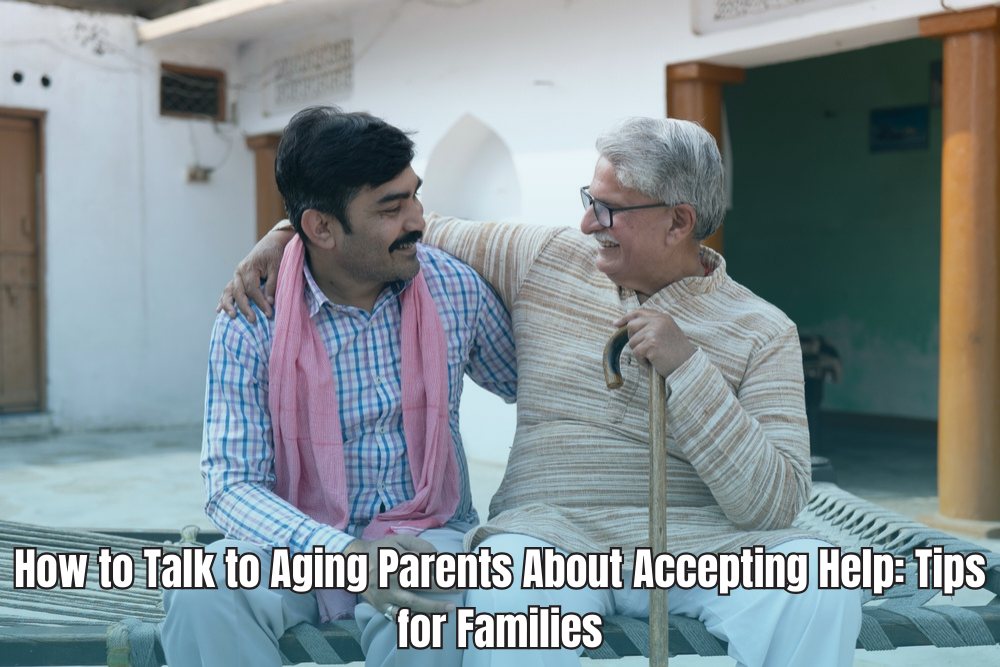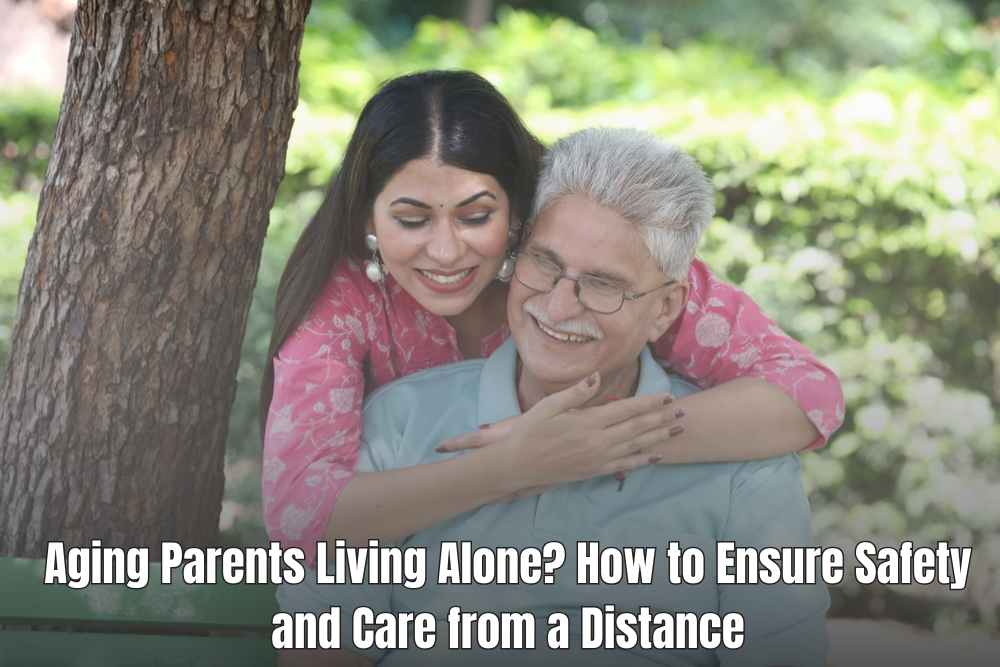As our parents age, it can become increasingly clear that they may need a bit of extra help with day-to-day activities. However, starting a conversation about accepting help can be challenging, especially if they’re used to their independence. This article covers how to approach such sensitive conversations with empathy and understanding, helping both you and your parents reach a comfortable agreement. From choosing the right timing and language to addressing their concerns respectfully, these tips are designed to support a positive and constructive conversation.
Why This Conversation Matters
Having this conversation is not only about safety but about maintaining your parents’ quality of life as they age. Sometimes, however, they may feel that accepting help signifies losing their independence, and this can lead to resistance. Being prepared and thoughtful in your approach can help address these fears while also showing them the benefits of having a little extra support in their lives.
Tips for Discussing Help with Aging Parents
1. Choose the Right Time and Place
- Timing is Key: It’s best to avoid starting this conversation during stressful moments or when they’re tired. Pick a calm, quiet time when they’re most likely to be receptive.
- Privacy Matters: Have this talk in a comfortable and private setting, such as their home or a familiar environment where they feel safe and respected.
2. Approach with Empathy and Respect
- Listen to Their Concerns: Understand that they may feel anxious, proud, or even defensive. Let them express their thoughts fully before responding.
- Show Respect for Their Independence: Frame the conversation around supporting their independence, not taking it away. For example, instead of saying, “You need help,” try, “I know you value your independence, and I want to help you maintain it.”
3. Use “I” Statements Instead of “You” Statements
- Avoid Blame or Judgement: Phrasing is important. Rather than saying, “You can’t do things like you used to,” say, “I feel worried when I’m far away because I want you to be safe.”
- Express Your Feelings Honestly: Share how much you care and want them to stay healthy and secure. This will make it clear that your intentions are based on love, not control.
4. Offer Specific Examples
- Identify Areas of Concern Gently: Instead of generalizing, talk about specific situations. For example, “I noticed you seemed a bit tired after cooking last time; maybe some help with meals would make it easier?”
- Suggest Small Changes First: Often, parents are more open to accepting help with smaller tasks at first. This could be a weekly cleaning service, a daily check-in call, or assistance with errands.
5. Present Practical Solutions
- Discuss Various Support Options: Explain that help can come in different forms, such as a part-time caregiver, a weekly companion, or even daily visits.
- Highlight the Benefits of Assistance: Focus on how extra support can free up their time for activities they enjoy and reduce the physical strain of daily chores.
6. Involve Them in the Decision-Making Process
- Give Them a Choice: Allowing your parents to make choices about the type of help they receive will help them feel in control. Ask if they’d prefer a family member or a professional caregiver, or if they’d rather have help with specific tasks.
- Encourage Small Steps: Suggest starting with a trial period or with assistance just once a week, allowing them to experience the positive effects of support.
7. Reassure Them That Accepting Help Is Normal
- Normalize the Idea of Support: Explain that it’s common for people to need help as they age. Reassure them that accepting assistance is a smart and practical step toward staying safe and independent.
- Share Positive Examples: Talk about friends or other family members who have embraced help and found it beneficial, showing that it’s a positive, empowering choice.
8. Be Patient and Prepared for Follow-Ups
- Don’t Rush the Process: It may take time for your parents to accept the idea of getting help. Allow them to think it over and bring it up gently if needed.
- Check Back Respectfully: Give them time, and follow up periodically without pressure. Respect their pace and be there to answer any questions or concerns they might have.
FAQ Section
- What if my parents completely refuse help?
If they’re very resistant, avoid pushing them. Try to understand their reasons, share your concerns lovingly, and revisit the conversation later. Sometimes, seeing you respect their wishes helps them become more open to discussion. - How do I convince my parents that getting help doesn’t mean losing independence?
Emphasize that the goal is to keep them independent by reducing physical strain. Focus on how help with certain tasks can actually allow them to enjoy their time and energy more fully. - What kind of help should I suggest first?
Start with simple tasks they may find less intrusive, like weekly cleaning, meal prep, or grocery shopping. This can be an easier way for them to experience the benefits without feeling overwhelmed. - How can I find reliable caregiving options?
Research local caregiving services with good reviews, like Shree Swami Samarth Patients Seva, which offers compassionate and experienced caretakers. Discuss the services with your parents and involve them in the selection process. - Is it better to hire a professional caregiver than rely on friends or family?
Professional caregivers bring training, experience, and reliability, ensuring consistent care. It also allows friends and family to focus on their roles as loved ones rather than full-time caregivers.
Conclusion: A Helping Hand with Shree Swami Samarth Patients Seva
Navigating this sensitive conversation with your parents can be challenging, but it’s ultimately about ensuring their comfort, safety, and well-being. By approaching the topic with respect, empathy, and a willingness to listen, you can help them understand the benefits of accepting help. Whether it’s for occasional assistance or regular care, having the right support in place can greatly improve their quality of life.
At Shree Swami Samarth Patients Seva, we understand the unique needs of aging parents and offer personalized, compassionate care. Our caretakers are trained professionals who bring both experience and kindness, acting as a bridge to maintain your parents’ comfort and independence. We have extensive experience in elder care, ensuring that your parents feel loved and cared for, even in your absence.



